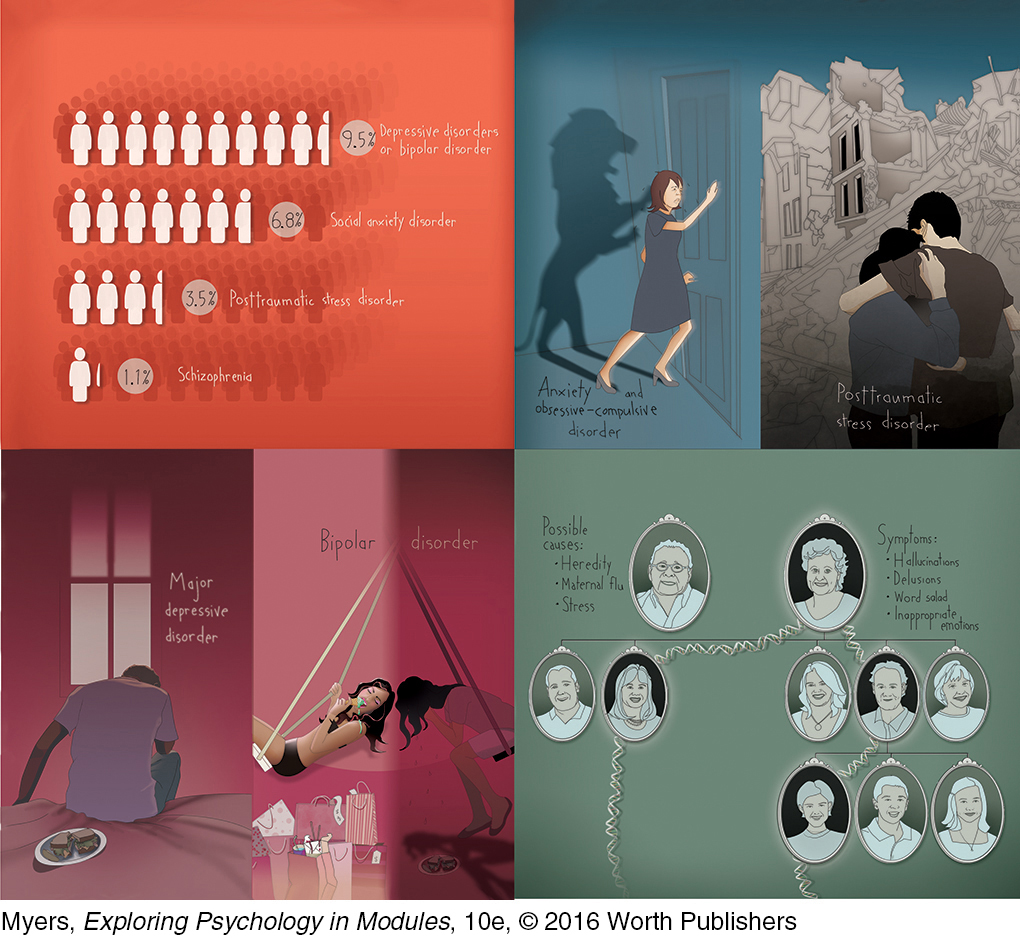Chapter 14 Introduction

Psychological Disorders

I felt the need to clean my room … and would spend four to five hours at it. I would take every book out of the bookcase, dust and put it back … I couldn’t stop.
Marc, diagnosed with obsessive-
Whenever I get depressed it’s because I’ve lost a sense of self. I can’t find reasons to like myself. I think I’m ugly. I think no one likes me.
Greta, diagnosed with depression (from Thorne, 1993, p. 21)
Voices, like the roar of a crowd, came. I felt like Jesus; I was being crucified.
Stuart, diagnosed with schizophrenia (from Emmons et al., 1997)
NOW and then, all of us feel, think, or act in ways that may resemble a psychological disorder. We feel anxious, depressed, withdrawn, or suspicious. So it’s no wonder that we sometimes see ourselves in the psychological disorders we study.
Personally or through friends or family, many of us will know the confusion and pain of unexplained physical symptoms, irrational fears, or a feeling that life is not worth living. On American college campuses, 32 percent of students report an apparent mental health problem (Eisenberg et al., 2011).
Worldwide, some 450 million people live with mental or behavioral disorders (WHO, 2010). Modules 40 through 43 examine these disorders. The Therapy modules consider their treatment. 